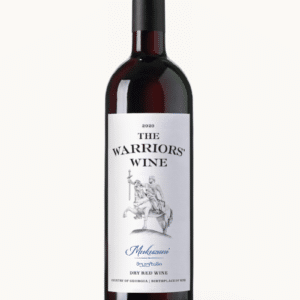
Wine Vernacular That Makes You Sound Like an Expert
You love wine. We understand – we love wine too! This affinity for the wide variety of grape-based spirits spans generations on a global scale. As such, there is a lot of jargon that is used when discussing wine that tends to delineate the sommeliers from the casual consumer. Thankfully, access to this language is on the rise and sounding like an expert is within reach! Check out these key terms that can help you sound well-versed in wine:
Starting at the beginning of the wine-making process is the Appellation of a wine. Appellation refers to where the grapes which make up the wine are grown. While many people know the significance of Champagne being a specific region in France where true champagne is produced, few people know that this is an example of the appellation of that specific sparkling wine.
After you know from where your wine originates, you should discuss the Varietals which make up the wine. The term “varietals” refers to the specific kind of grape or grapes which went into the finished wine product. Many wines are single-varietal and you probably already know more varietals than you realize (ie. Chardonnay, Merlot, Zinfandel, etc…).
As you begin to sip your wine terms such as Body, Acidity, Sweetness (or Dryness), Nose, and Mouthfeel are likely to come up. All of these terms refer directly to different parts of the wine as you drink it. Let’s break these terms down individually:
- Body refers to the “weight” of the liquid as it sits in your mouth. You may also think of it as the “thickness” of the wine. A good frame of reference in determining the body of a wine is to compare it to dairy where wines with lighter bodies are akin to non-fat milk, while full-bodied wines are more like heavy cream.
- Acidity can be felt against your tongue and soft palette. While acid is an important part of every wine, overly-acidic wines may leave your mouth feeling coated or “fuzzy”.
- Sweetness/Dryness is determined by the sugar content of a wine. Typically with sweeter wines there is a higher Residual Sugar content, meaning that less fermentation occurred, resulting in a lower ABV wine. The dryer the wine, the lower the sugar content.
- Nose describes the aroma of a wine as well as the anticipated flavor of a wine before you actually taste it.
- Mouthfeel is an amalgamation of the body, acidity, and sugar content of a wine. In short, mouthfeel is how the wine feels in your mouth. Some examples of typical wine mouth feels are sharp, round, smooth, and crisp.
Tannins are one of the most important components of many wines. While these naturally-occurring compounds are found in all wines, they are most commonly found in abundance in reds. The presence of tannins can be detected by tasting a pleasant bitterness and feeling a degree of dryness in a wine.
Another type of naturally-occurring compounds in wine are Sulfites; unlike tannins, sulfites will degrade the taste, mouthfeel, and color of a wine.
While the language surrounding wine is storied and still expanding, knowing the basics of the jargon goes a long way when it comes to sounding like an expert. Not everyone needs to be a certified sommelier to be able to describe what makes wine so good!



